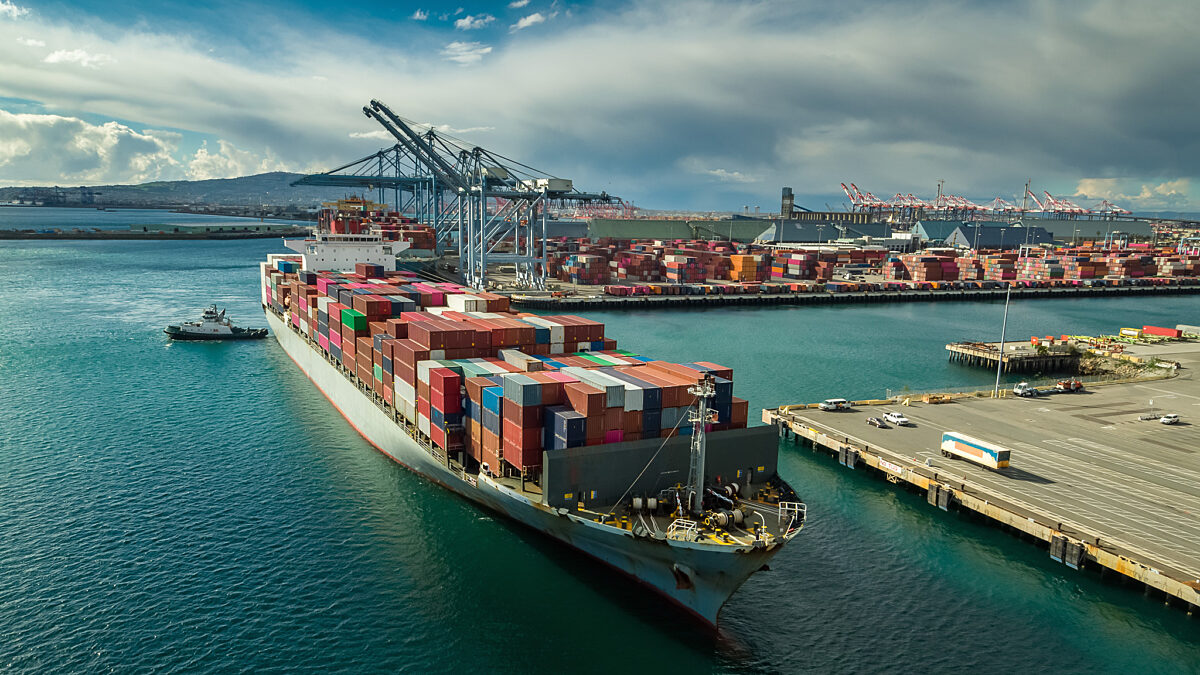Farmers Understand the Real Value of TPP
Guest Author
Special Contributor to FB.org

photo credit: Getty
Guest Author
Special Contributor to FB.org
I recently posted a couple of photos on social media of my niece 's adorable young daughter, Sadie, standing beside signs that I had stuck in a farm field. The signs stated, "My Farm Exports" and "We Support Trade." I received a few nice comments about Sadie 's blonde cuteness, as well as a couple of questions from non-farm friends about the message. Why does an average farmer care about trade with other countries? How could foreign trade possibly affect an average Illinois farm family?
Export sales make an important contribution to the farm economy. About 20 percent of U.S. farm income comes from agricultural exports, including my family 's farm and the farm where Sadie lives. And there is increased demand overseas for products that are grown on U.S. farms due to the fast-growing economies of many Asia-Pacific countries.
The main crops that we grow on our farm are corn, soybeans, wheat and beef. My son also has a dairy on our farm. Trade agreements, like the Trans-Pacific Partnership, would give us greater access to markets in a region where incomes are rising and there is increasing demand for high-quality protein. Farm products like soybeans, beef, pork, poultry, dairy, vegetables, fruits and nuts would all see significant gains in exports across the Asia-Pacific region. Corn and wheat demand would also increase as both are often used for livestock feed.
TPP matters for all types of farms and ranches. Our farm is not exceptional in size or in crops grown. What we choose to grow is based on market factors, suitability for our climate and soil types, how our farm is set up for equipment, storage, labor, experience and a number of other variables. Like the vast majority of farmers in our area, we sell the grain we produce to local elevators—or large storage facilities—that market it and send it in different directions across rivers and oceans. Some of our soybeans are sent via rail to Chicago where they 're loaded into containers headed to Long Beach, California, then on to destinations like Indonesia, Vietnam, Malaysia or China. Like all of our food-grade soybeans, our wheat is often sent to Japan. The bottom line is that it is imperative that we have flexibility in both domestic and foreign markets to keep our farm business running in today 's economy.
The price a farmer receives for his or her crop is determined by supply and demand. Farm incomes have been declining the past couple of years due to low commodity prices, huge surpluses of grain currently in storage and high input costs. It 's a financially stressful time with an uncertain outlook for American farmers and ranchers. There 's lots of competition for our market share, especially with South America rapidly improving its infrastructure and adding acres. Since 95 percent of all consumers live outside our borders, the future of agriculture depends on our ability to sell to foreign markets.
Without the TPP, American agriculture would suffer serious losses. Other countries will simply move forward with this agreement and others like it without us. We risk losing our current export market share, something that American farmers frankly cannot afford in the current economy. It would mean even less money in the farmer 's pocket which would force us to cut expenses further, reduce investments in machinery and input purchases, and postpone any expansion and capital purchases. All this means a serious hit to our rural economies as well.
One of the most important outcomes of increased exports will be the impact on employment here at home. Currently in Illinois, 60,600 jobs are supported by ag exports. Increased sales of farm products will generate economic activity and off-farm job creation. It 's been estimated that increased market access for U.S. goods will result in the addition of more than 40,100 jobs.
TPP is a good deal not just for American farmers and ranchers but for all of our communities, businesses and consumers—as well as for Sadie 's future, whether she chooses a career in agriculture or not.
Michele Aavang farms with her family in Woodstock, Illinois, where they grow corn, soybeans, wheat and beef on the same land the family has been farming for 160 years.
Top Issues
VIEW ALL